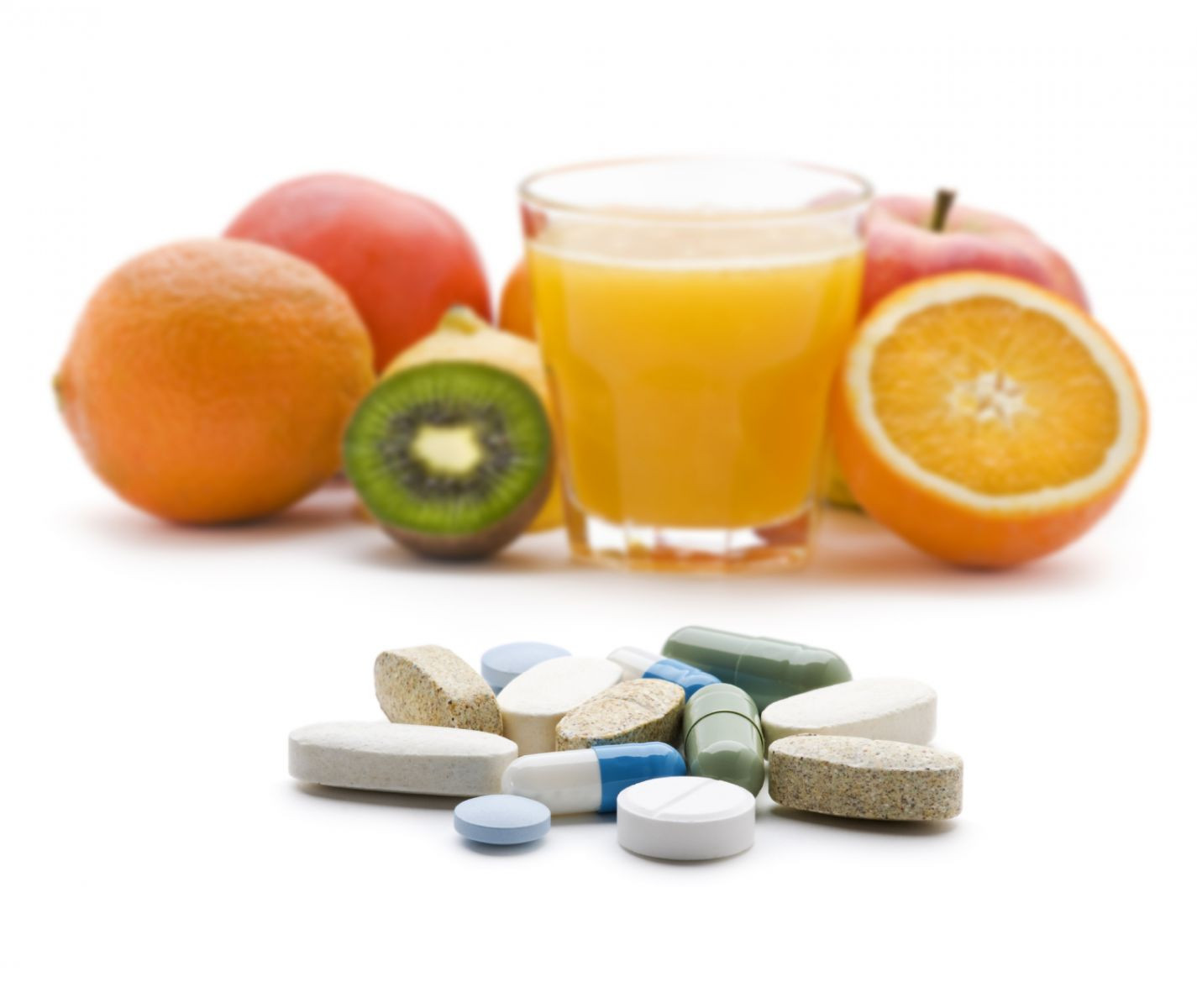What Is Depression and Anxiety?
Boldly navigating the landscape of mental health, many individuals seek natural remedies vitamins that help with depression and anxiety. The quest for holistic approaches to mental wellness has led to a growing interest in the role of vitamins and nutrients in combating these prevalent conditions. Understanding the intricate connection between our mental and physical well-being is crucial for anyone on this journey toward a healthier mind.
Depression and anxiety, two common mental health disorders, affect millions worldwide. Depression, characterized by persistent feelings of sadness and a lack of interest or pleasure in activities, often coexists with anxiety, which manifests as excessive worry, fear, or apprehension. While professional medical advice is indispensable, an increasing body of research suggests that certain vitamins and nutrients may play a pivotal role in alleviating symptoms and promoting mental well-being.
The Best Natural Vitamins That Help With Depression
The best vitamins for depression and anxiety encompass a range of essential nutrients that support mental well-being. Integrating a variety of these vitamins through a balanced diet or supplements, guided by healthcare professionals, can be a proactive step toward managing and alleviating depression and anxiety.
1. Vitamin D
Often hailed as the “sunshine vitamin,” Vitamin D has garnered attention for its potential impact on mental health. Studies have linked Vitamin D deficiency to an increased risk of depression. Spending time outdoors and incorporating Vitamin D-rich foods into your diet can be natural vitamins that help with depression anxiety.
2. Vitamin B12
This essential vitamin is vital for the proper functioning of the nervous system. A deficiency in Vitamin B12 has been associated with mood disturbances and cognitive decline. Including B12-rich foods or supplements in your diet may contribute to improved mental well-being.
3. Folate (B9)
Folate, a member of the B-vitamin family, is known for its role in neurotransmitter synthesis. Low folate levels have been linked to depression, and increasing folate intake through diet or supplements may offer depression-busting nutrients for your mental health.
4. Vitamin C
Beyond its immune-boosting properties, Vitamin C has antioxidant effects that may combat oxidative stress, which has been implicated in depression. Including fruits and vegetables rich in Vitamin C in your diet can provide nutritional support for mood enhancement.
5. Niacin (B3)
Niacin is crucial for the production of serotonin, a neurotransmitter associated with mood regulation. A deficiency in Niacin has been linked to depression, making it an essential component of vitamin therapy for mental health.
6. Vitamin A
Known for its role in vision, Vitamin A also contributes to brain health. While excessive intake should be avoided, maintaining adequate levels of Vitamin A through a balanced diet can be part of a holistic approach to mental wellness.
7. Vitamin E
As an antioxidant, Vitamin E protects cells from oxidative damage. Some studies suggest that it may have a role in reducing symptoms and vitamins that help with depression and anxiety. Including Vitamin E-rich foods in your diet can be a part of anxiety relief through nutrition.
8. Vitamin K
While primarily recognized for its role in blood clotting and bone health, Vitamin K may also have neuroprotective effects. Incorporating Vitamin K-rich foods into your diet can contribute to mood-boosting vitamin sources.
9. Iron
Iron deficiency can lead to fatigue and cognitive impairments, which may contribute to feelings of depression. Including iron-rich foods or supplements may be part of a nutritional support strategy for mood improvement.
10. Vitamin B9
Folic acid, or Vitamin B9, plays a crucial role in neurotransmitter synthesis. Adequate levels of Vitamin B9 are essential for mental well-being, and its deficiency has been associated with an increased risk of depression.
Supplements for Depression and Anxiety: A Deeper Dive into Supportive Solutions

While maintaining a well-rounded diet is a fundamental aspect of mental health, some individuals may find additional relief through carefully chosen supplements for depression. These vitamins help with depression and anxiety and address specific nutritional deficiencies or provide targeted support for the complex interplay of neurotransmitters and mood-regulating pathways. It is paramount, however, to approach supplementation with caution and under the guidance of a healthcare professional to ensure safety and efficacy.
Omega-3 Fatty Acids: Nourishing the Nervous System
Among the notable supplements for depression, Omega-3 fatty acids stand out as powerful allies in promoting mental well-being. Found abundantly in fatty fish such as salmon, mackerel, and trout, as well as in flaxseeds and walnuts, Omega-3s are essential for brain health. These fatty acids, particularly EPA (eicosapentaenoic acid) and DHA (docosahexaenoic acid) have demonstrated promising results in studies related to depression. They contribute to the structure of cell membranes in the brain and modulate neurotransmitter function, potentially mitigating symptoms associated with depression.
B-Vitamins: Neurotransmitter Support
The B-vitamin family, including B6, B9 (folate), and B12, is integral to neurotransmitter synthesis and function. Deficiencies in these vitamins have been linked to mood disorders, including anxiety. By supporting the production of neurotransmitters like serotonin and dopamine, B vitamins contribute to a well-regulated nervous system, potentially easing symptoms of anxiety.
Magnesium: The Calming Mineral
Magnesium, an essential mineral involved in numerous biochemical processes, is often referred to as the “calming mineral.” It plays a role in regulating the activity of the neurotransmitter GABA, which has calming effects on the brain. Supplementing with magnesium may help relax the nervous system and reduce symptoms of anxiety.
Probiotics: The Gut-Brain Connection
The gut-brain connection is a fascinating area of research, and the role of gut health in mental well-being is gaining recognition. Probiotics, beneficial bacteria that support gut health, may influence brain function and mood. By maintaining a healthy balance of gut flora, probiotics could potentially contribute to anxiety relief.
Consulting a Healthcare Professional: The Crucial Step
Before incorporating any supplements into your routine, consulting a healthcare professional is paramount. While Omega-3 fatty acids and St. John’s Wort have shown promise, individual responses can vary, and interactions with medications or pre-existing health conditions must be carefully considered. A healthcare provider can conduct a thorough assessment of your specific needs, ensuring that supplementation aligns with your overall health goals and does not compromise your well-being.
Balancing Act: The Importance of Professional Guidance
Supplements for depression are not a one-size-fits-all solution. Achieving the right balance of nutrients requires personalized guidance to address unique factors contributing to individual mental health challenges. A healthcare professional can conduct assessments, monitor progress, and make adjustments as needed. Moreover, they can provide valuable insights into potential interactions between supplements and medications, ensuring a holistic and safe approach to mental wellness.
While Omega-3 fatty acids and St. John’s Wort hold promise as supplements for depression, they should be viewed as complementary to a broader mental health strategy. The synergy between a balanced diet, lifestyle modifications, and professional guidance forms the foundation of a holistic approach to mental wellness. Always prioritize open communication with healthcare providers to navigate the intricate landscape of supplementation safely and effectively.
Navigating the Balance: Understanding the Side Effects of Vitamin Supplements
Vitamins for depression and anxiety are indispensable for maintaining overall health, supporting various bodily functions, and contributing to mental well-being. However, like any good thing, an excess of vitamins can have adverse effects. Striking the right balance and avoiding megadoses are crucial considerations for anyone incorporating vitamin supplements into their routine. Here’s a closer look at potential side effects and the importance of professional guidance in ensuring a harmonious relationship with these essential nutrients.
Digestive Issues: A Common Warning Sign
Excessive intake of certain vitamins, particularly fat-soluble ones like Vitamin A and Vitamin D, can lead to digestive issues. These may include nausea, vomiting, and abdominal discomfort. Water-soluble vitamins, such as Vitamin C and certain B vitamins, can cause digestive upset in large doses as well. It’s essential to be mindful of your body’s response to supplementation and scale back if any discomfort arises.
Headaches: A Sign of Imbalance
As vitamins that help with depression and anxiety and Vitamin supplements in excess may contribute to headaches. This is often associated with certain B vitamins, especially B6, and fat-soluble vitamins. Headaches can be an indication that your body is not processing the excess vitamins efficiently. Monitoring your vitamin intake and adjusting your supplementation under professional guidance can help alleviate this side effect.
Interactions with Medications: A Complex Web
One of the critical considerations when taking vitamin supplements is their potential interactions with medications. Certain vitamins may interfere with the absorption or effectiveness of medications, leading to unintended consequences. For example, Vitamin K can interact with blood-thinning medications, while Vitamin E may interact with antiplatelet drugs. Always disclose your supplement regimen to your healthcare provider to ensure a comprehensive understanding of potential interactions.
Professional Guidance: The Key to Safe Supplementation
To mitigate the risk of side effects, seeking professional guidance is paramount. Healthcare providers possess the expertise to assess your individual needs, existing health conditions, and potential interactions with medications. They can recommend the appropriate dosage of vitamin supplements tailored to your unique requirements, ensuring that you receive the benefits without compromising your well-being.
Balancing Act: Striving for Optimal Health
Balancing your vitamin intake is a nuanced process that requires attention to both nutritional needs and potential risks. Rather than adopting a more-is-better approach, prioritize a balanced diet rich in diverse nutrients. Supplements should complement, not replace, the nutrients obtained from whole foods.
A Thoughtful Approach to Vitamin Supplementation
In the pursuit of optimal health, vitamin supplements can be valuable allies. However, a thoughtful and informed approach is crucial to prevent potential side effects. Always consult with a healthcare provider before embarking on a supplementation regimen. They can guide you in determining the appropriate dosage, identify potential interactions, and monitor your progress.
Remember, vitamins are powerful agents in supporting your health, but their effectiveness lies in balance. By embracing a collaborative journey with healthcare professionals, you can harness the benefits of vitamin supplements while avoiding the pitfalls of excessive intake. Your well-being is a delicate balance, and with the right guidance, you can navigate the world of vitamin supplementation safely and effectively.
Conclusion
In the pursuit of mental well-being, adopting a holistic approach is key. Integrating a variety of vitamins and nutrients through a well-balanced diet, coupled with targeted supplements under professional guidance, can be a powerful strategy. The field of vitamin therapy for mental health is dynamic and evolving, with ongoing research shedding light on new possibilities.
As you embark on this journey, remember that beating anxiety with vitamins is just one facet of a multifaceted approach to mental health. Nutritional support for mood is a collaborative effort between your lifestyle, diet, and medical guidance. Strive for a comprehensive, holistic approach to mental wellness, and celebrate the small victories along the way. This integrative strategy, involving the right vitamins that help with depression and anxiety, ensures a more nuanced and personalized approach to mental well-being.
Frequently Asked Questions:
1. What are vitamins that help with depression and anxiety?
Key vitamins include Vitamin D, B12, Folate (B9), Vitamin C, Niacin (B3), Vitamin A, Vitamin E, Vitamin K, Iron, and Vitamin B9. Incorporating these vitamins through a well-balanced diet or supplements under professional guidance can contribute to overall mental wellness.
2. How do anxiety-fighting vitamins work?
Anxiety-fighting vitamins often play a role in neurotransmitter synthesis, oxidative stress reduction, and overall brain health. By addressing these aspects, these vitamins contribute to a more balanced and resilient nervous system.
3. Are there any depression-busting nutrients in specific foods?
Yes, many foods contain depression-busting nutrients. For example, fatty fish like salmon are rich in Omega-3 fatty acids, which have shown promise in supporting mental health. Dark leafy greens, nuts, and seeds also offer a spectrum of vitamins crucial for mental well-being.
4. How can vitamin therapy contribute to mental health?
Vitamin therapy for mental health involves ensuring an adequate intake of essential vitamins through diet and, if necessary, supplements. This approach aims to address nutritional imbalances that may contribute to symptoms of depression and anxiety.
5. Can vitamins really ease depression and anxiety?
While vitamins alone may not be a cure for depression and anxiety, they play a supportive role in overall mental health. Adequate nutrition, including essential vitamins, is fundamental for a well-functioning nervous system and emotional well-being.







Leave a Reply